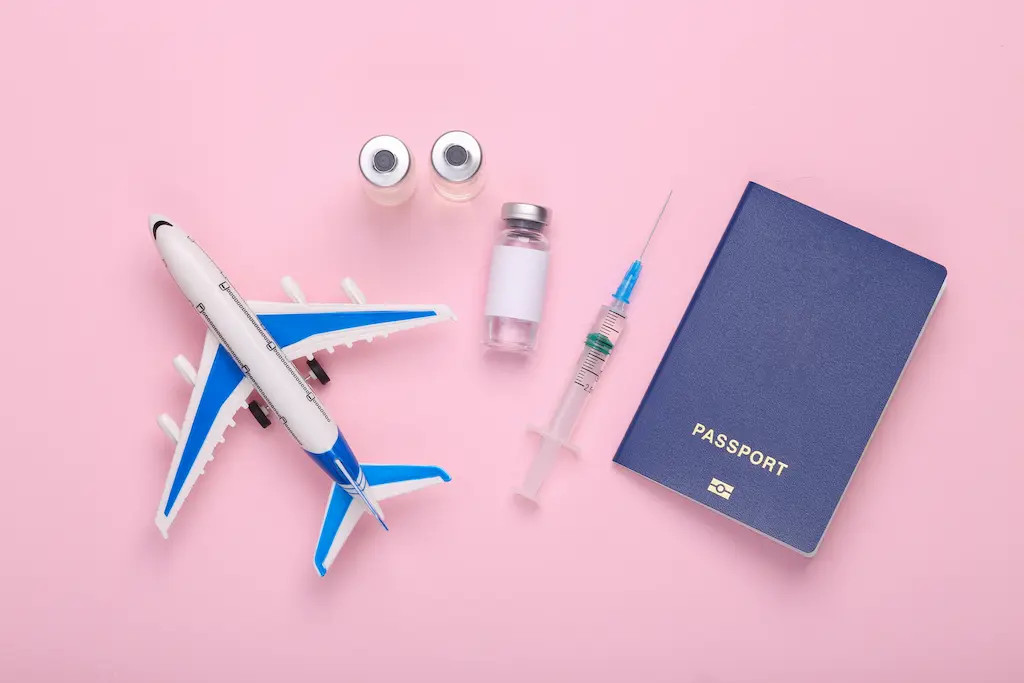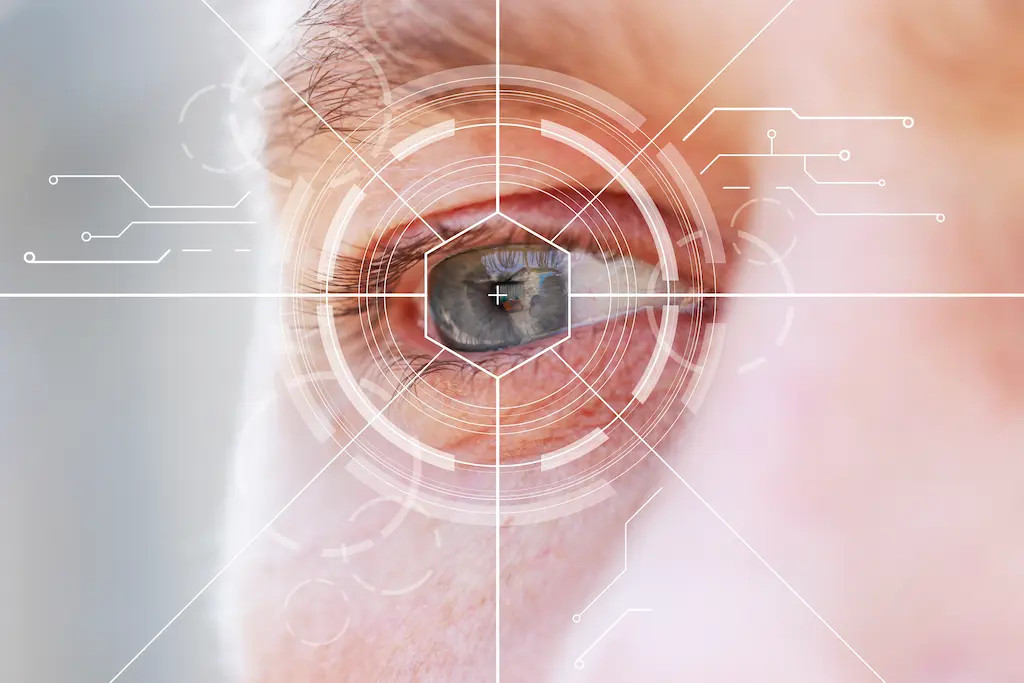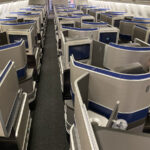 Smiling senior woman confidently preparing luggage for travel after cataract surgery, emphasizing quick return to normal activities.
Smiling senior woman confidently preparing luggage for travel after cataract surgery, emphasizing quick return to normal activities.
Planning a trip after cataract surgery? It’s a common concern for many, and the good news is, air travel is generally safe after undergoing this vision-correcting procedure. For those who’ve had cataract surgery, including advanced laser-assisted procedures, there’s typically no need to postpone your travel plans. Medical restrictions on flying post-cataract surgery are minimal, allowing you to resume your normal life, including travel, relatively quickly.
However, there’s a crucial exception to note: If you’ve had detached retina surgery involving the injection of a gas bubble, flying is not advised. The change in air pressure during a flight can cause the gas bubble to expand, potentially leading to serious complications in your eye. In such cases, it’s imperative to wait until your ophthalmologist confirms the gas bubble has dissipated before you consider air travel.
Beyond this specific scenario, flying after cataract surgery is usually permissible. Yet, like with any surgical procedure, especially one involving your eyes, there are some important considerations to ensure a comfortable and safe journey. Let’s explore what you need to keep in mind to make your post-cataract surgery travel experience smooth and worry-free.
Navigating Dry Eyes After Cataract Surgery and Air Travel
One of the common, albeit temporary, side effects of cataract surgery is dry eyes. This can be attributed to a few factors. Firstly, Betadine, an antiseptic used to sterilize the surgical area, can contribute to dryness. Secondly, the post-operative eye drops, while crucial for healing, often contain preservatives that can irritate the eyes in some individuals. Furthermore, the surgery itself can temporarily impact tear production, eyelid closure, and the ocular surface, all leading to dryness.
Dry eyes manifest in various uncomfortable sensations such as burning, aching, a gritty feeling as if something is in your eye, and even blurry vision. This discomfort can increase the urge to rub your eyes, inadvertently raising the risk of infection.
The cabin environment of an airplane can exacerbate dry eye symptoms. The already dry air in an airplane cabin can make your eyes feel significantly more uncomfortable than they would on the ground. To mitigate this, frequent use of artificial tears is highly recommended. Consider preservative-free options for even gentler relief, and don’t hesitate to discuss dry eye therapy with your eye doctor if the discomfort persists or becomes severe. They may recommend specific treatments or further strategies to keep your eyes lubricated and comfortable during and after your flight.
Essential Post-Operative Care and Travel Considerations
Adhering to your ophthalmologist’s recommended post-operative care schedule is paramount, especially if you’re planning to travel soon after cataract surgery. Typically, follow-up appointments are scheduled for the day after surgery and again within the subsequent two weeks. These appointments are crucial for monitoring your healing progress and promptly identifying any potential complications.
If travel is on your horizon in the weeks following your surgery, it’s vital to inform your cataract surgeon. Work closely with their office to schedule your necessary follow-up appointments around your travel dates. Flexibility and open communication are key to ensuring your post-operative care isn’t compromised by your travel plans.
Moreover, diligently follow all post-surgery instructions provided by your surgeon. This includes the consistent use of prescribed eye drops and wearing a sleep mask at night to protect your eyes during the initial recovery phase. If you have any uncertainties or concerns about traveling or engaging in specific activities shortly after your cataract surgery, proactively seek advice from your surgeon. They can provide personalized guidance based on your individual healing progress and travel plans.
Travel Insurance and Cataract Surgery: What to Know
Generally, cataract surgery itself doesn’t create complications with travel insurance policies. However, it’s always prudent to verify this with your specific travel insurance provider or policy documentation. Some policies might have clauses related to pre-existing conditions or require a certain waiting period after surgery before full coverage applies.
Specifically inquire whether there are any exclusions or restrictions related to medical expenses that might arise from or be related to your recent cataract surgery. Understanding the terms of your travel insurance ensures you’re adequately covered and avoids unexpected financial burdens should any medical needs arise during your trip.
Medical Access and Post-Cataract Surgery Travel
 Close-up on a smartphone displaying a map and medical icons, illustrating the importance of medical access when traveling post-cataract surgery.
Close-up on a smartphone displaying a map and medical icons, illustrating the importance of medical access when traveling post-cataract surgery.
While most people experience a quick return to normalcy, with their eyes feeling considerably better within 24 hours post-surgery, it’s important to be mindful of the complete cataract surgery recovery timeline, which typically spans four to six weeks. During this period, maintaining eye hygiene and consistent lubrication are essential to facilitate optimal healing. It’s also advisable to moderate activities to allow your eyes adequate rest and recovery.
Infections after cataract surgery are rare, but vigilance is key. Be alert to symptoms such as worsening vision, unusual redness, or increasing pain in the eye. Should any of these signs manifest, seek immediate professional ophthalmologic medical attention. Prompt treatment is crucial to prevent potential permanent vision loss from infection.
When planning travel during your cataract surgery recovery, especially within the initial weeks, consider your access to medical care at your destination. Opting for travel to well-developed areas with readily available medical facilities is a wise precaution. Conversely, it’s generally advisable to avoid remote locations with limited access to healthcare services during this recovery phase. Ensuring access to medical support provides peace of mind and a safety net should any unexpected eye-related issues arise while you are away from home.
The Dry Plane Environment and Your Eyes
The environment inside an airplane cabin is notably dry. As planes ascend to cruising altitude, the external air pressure decreases significantly. To maintain a comfortable cabin environment, airplanes pressurize the air inside. However, at typical flying altitudes, the humidity level is extremely low, often less than 1%. This results in very dry air circulating within the cabin.
This arid environment draws moisture from our bodies, leading to quicker dehydration of both skin and eyes. Furthermore, travel routines often disrupt our normal hydration habits, potentially leading to reduced water intake, less healthy food choices, and disrupted sleep patterns – all of which can exacerbate dry eye symptoms. Being aware of the dry cabin environment is the first step in taking proactive measures to combat its effects on your eyes post-cataract surgery.
Practical Tips for Flying Comfortably After Cataract Surgery
When discussing your travel plans with your ophthalmologist or eye surgeon, keep these helpful tips in mind to ensure a smooth and comfortable journey:
- Understand Post-Surgery Expectations: Ask your doctor about what to expect during recovery. Knowing the difference between normal, mild symptoms and signs that might indicate a complication is crucial for peace of mind and timely action.
- Consider a Short Home Stay: If possible, plan to stay home for a few days immediately following your surgery, or for the duration recommended by your doctor. This allows for initial monitoring and addresses any immediate post-operative concerns.
- Attend All Follow-Up Appointments: Make every effort to attend all scheduled follow-up appointments. These check-ups are vital for your surgeon to assess your healing progress and ensure you are recovering as expected.
To specifically combat dry eyes while flying after cataract surgery, frequent use of artificial tears is your most effective strategy. For maximum comfort and minimal irritation, choose preservative-free artificial tears and apply them liberally, even hourly, throughout your flight.
In addition to artificial tears, consider these further tips for in-flight eye comfort:
- Prioritize Naps: If you can sleep on airplanes, take advantage of it! Sleeping gives your eyes a break and helps prevent them from drying out excessively.
- Stay Hydrated: Drink plenty of water throughout your journey. Bring an empty water bottle to fill at the airport after security to ensure you have water readily available during your flight and combat dehydration.
- Adjust Air Vents: Close or redirect the air vent above your seat. Direct air flow can significantly exacerbate dry eyes. Minimizing direct airflow onto your face can help retain moisture in your eyes.
Need Expert Cataract Surgery Advice?
In conclusion, flying after cataract surgery is generally safe, often within 24 hours. The key to comfortable and safe air travel post-surgery lies in understanding potential issues like dry eyes, adhering to post-operative care instructions, and being prepared with strategies to mitigate discomfort during your flight. Ensuring you have planned for appropriate follow-up care and have access to medical assistance at your destination are also important considerations.
Want to learn more about cataract surgery and determine if it’s the right vision correction solution for you? Schedule an appointment online with the experienced cataract specialists at Discover Vision Centres in Kansas City. Our team is dedicated to guiding you through every step of vision correction, helping you restore your eyesight and enhance your quality of life.
Home » Blog » How Soon Can You Fly After Cataract Surgery?
